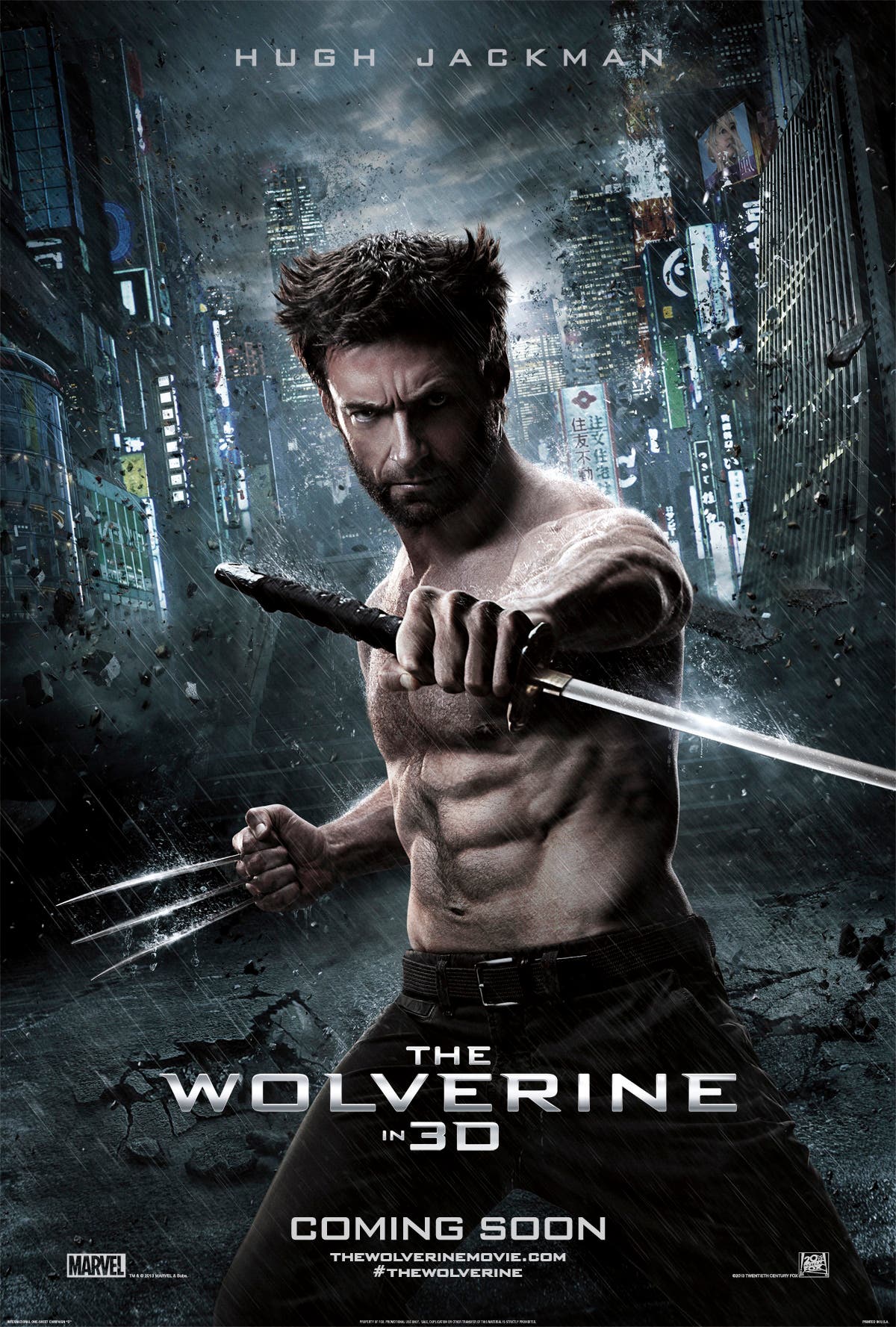 The X-Men franchise's Black Belt moment, or its last stand? Our definitive verdict on 2013's most personal blockbuster...
The X-Men franchise's Black Belt moment, or its last stand? Our definitive verdict on 2013's most personal blockbuster...Here's a quick rhetorical question: what is the definition of a 'ronin'? In essence, this Japanese term refers to a Samurai who is born without a master, and thus seemingly has no true motive to live. In the case of both The Wolverine's protagonist and the franchise from which it derives, such a term is doubly significant, with 2007's atrocious X-Men: The Last Stand having left the series of comic-book adaptations in a flux state of prequels and spin-offs ever since its première six years ago. This instalment marks a unique turn of events in its screenplay writers having the sheer courage to place its narrative after The Last Stand, and ultimately comes off all the better for it.
Above all, The Wolverine marks a truly formative experience in the context of its beloved Marvel franchise, setting the saga of the X-Men back on a definitive and compelling course with an assured future direction. Taking place eight years after Jean Grey's demise and the emergence of the Mutant Cure, this time around the storyline focuses exclusively on Hugh Jackman's Wolverine, who is transported from his cave-dwelling retreat to Tokyo in order to discuss a potential reversal of his immortality with an old friend. That the stakes here are personal rather than global marks a distinguished shift in the paradigm for the series, allowing the viewer a surprising degree of empathy as they contemplate along with Jackman and the production team what it means to lead a life without an end.
It's only natural to assert that were this morally eschewed premise to be this motion picture's only strength, then fans would instantly label it a failure on the scale of 2009's relatively dismal X-Men Origins: Wolverine. That's far from the case, though- instead, director James Mangold uses the layers of intrigue and mystery encompassed in the premise as mere foundations for his piece, bringing the world's favourite eternal hero into a society which is far removed from those depicted in previous instalments. Whether through his innovative, vast representation of Tokyo in his direction or through the intelligent decisions made during the casting process to ensure an international yet accessible ensemble grace the screen, Mangold has effortlessly manipulated the talents of his production team to create a cinematic production which instantly brings a sense of unique tonal diversity to the table.
Too frequently this Summer, viewers have been presented with an underwhelming and needlessly star-studded cast roster that favours Hollywood appeal over narrative necessity. In this instance, Mangold and his 20th Century Fox colleagues have been only too eager to differentiate too, with Jackman's name virtually the only one of note to fans of the franchise and celebrities alike. Faimke Jannsen does reprise her role as Jean Grey in a handful of effective hallucinatory sequences, and perhaps there are even one or two more returnees awaiting the viewer in the post-credits scene as well, but on the whole the ensemble stands in vast contrast to what's come before. Thankfully, this element of diversity once again works to the film's benefit far more than its detriment, with newcomers including Rila Fukushima (Yukio), Tao Okamoto (Mariko) and Haruhiko Yamanouchi (Yashadi) all providing viewers with a fair share of laughs, thrills and intriguing moments of note throughout the piece. With any luck, the imminent manifestations of this actorial success could be beneficial to the industry as a whole, finally placing a greater emphasis on the requirements of narrative rather than a motion picture's overall budget.
On a host of fronts, then, Mangold and his team have bested their franchise competitors and raised the benchmark for future instalments by an impressive scale. All the same, one of the piece's defining strengths also serves to highlight a notable shortcoming looming within. Despite a unique balance often being struck by the screenplay writers of emotion and action, when the latter style of sequence does gain prominence during proceedings, it leaves a rather bitter adamantium-tinged taste in the mouth, as the viewer is left to simply anticipate the resolution of a dull physical conflict so as to push forward towards a new development in the plot. Whereas recent hit superhero films like Avengers Assemble and The Dark Knight Rises have for the majority managed to ensure that their action setpieces appear relevant within the context of their narratives, in this case the action can seem like an awkward diversion from the core storyline, awkwardly juxtaposed with the effective representation of an alien culture and mortal boundaries.
Such qualms should on no grounds place a viewer in the position of skipping this entry in the Summer of Film 2013, though. On the contrary, whereas a large proportion of this Summer's blockbusters can be affordably skipped in lieu of their DVD debut later in the year, there's an awe-inspiring sense of scale and wonder to The Wolverine which practically begs for a big-screen initial viewing. Although it only reaches the heights of its immediate predecessor, X-Men: First Class (2011), on infrequent occasions, Mangold's latest production nevertheless aspires to and attains a far greater level of quality than either The Last Stand or Origins. Jackman remains perfectly synced with his ferocious role thirteen years after his début as Wolverine, and in Mangold we just may have found the most accomplished director yet for the series. The Wolverine bestows its franchise with rich new life that should sustain the X-Men films for years to come- and judging by a rather game-changing prologue to X-Men: Days of Future Past contained within the credits, the best is yet to come. X-fans, rejoice- it seems that this series does have something to live for after all...
4/5

No comments:
Post a Comment